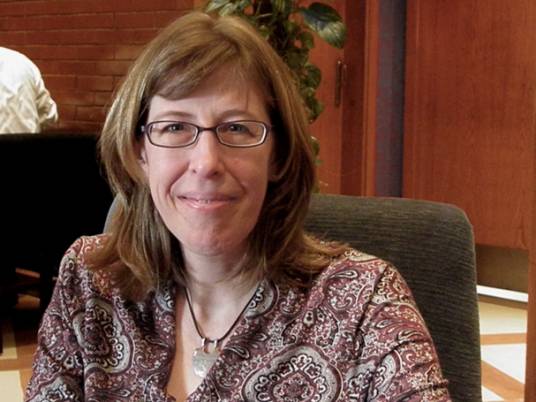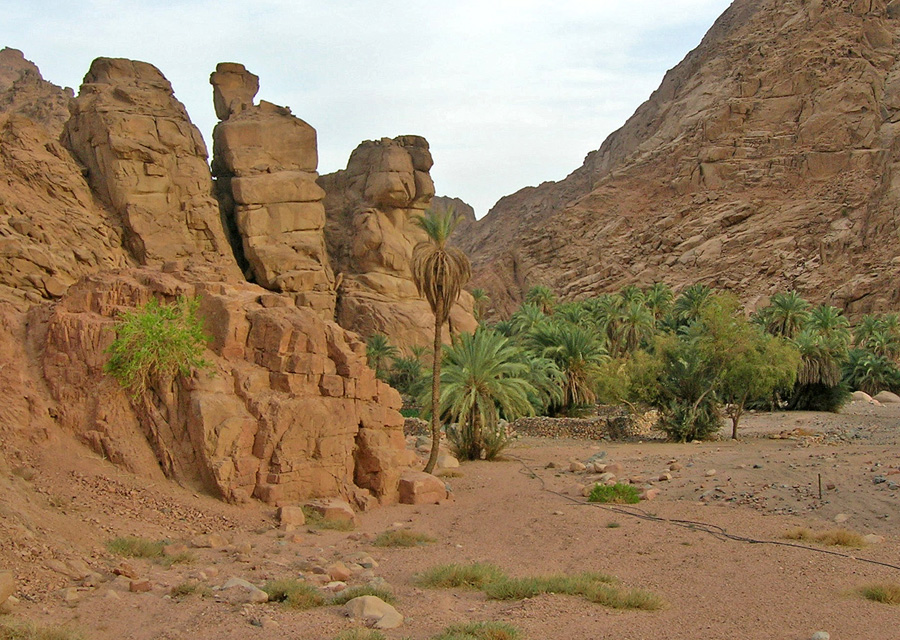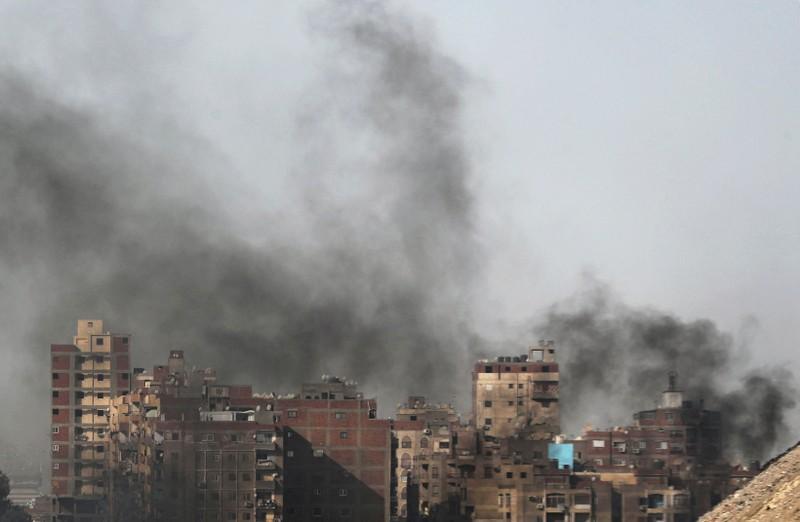
Environmental issues are not only the result of geography and lack of resources, but of decades of institutional decay, argues Jeannie Sowers, a political science professor at the University of New Hampshire who specializes in Middle Eastern studies and comparative environmental politics.
Sowers has closely followed environmental politics in Egypt since the late 1990s, and recently published a book titled “Environmental Politics in Egypt: Activists, Experts, and the State.” This week, she gave a talk on some of the book’s major issues at the British Council during an event organized by the Egyptian NGO Nature Conservation Egypt.
Her book analyzes how networks of experts and activists have tried to address environmental problems, despite the tough conditions they face. Years of under-investment, over-employment and authoritarian rule have undermined state institutions’ performance and the provision of public services, she says.
Sowers argues that environmental issues — such as access to water and land, and the provision of basic services such as sanitation and trash collection — are closely tied to the revolution’s demands for “bread, freedom and social justice.”
To dig a little deeper, Egypt Independent caught up with Sowers to discuss some of her ideas in closer detail.
Egypt Independent: Could you explain what you think “environmental politics” in Egypt really means?
Jeannie Sowers: Yes. State institutions and international donors working on environmental issues often still employ a top-down, technocratic approach that considers environmental issues as problems of resource management, of introducing new technologies and practices to some well-defined “users.”
But when we look at any specific environmental problem, we often find there are a number of actors and informal practices that are poorly understood. Whether it is land use, energy use, industrial pollution or use of groundwater, first we have to have a good understanding of the actors involved, the informal practices and routines employed to make things work, and the possibilities for change.
These actors are not just individuals or local communities, but companies, governmental authorities, the military and so on. It is important for environmentalists to determine who are the players, and then be strategic about what you can possibly do and what you can’t.
EI: Inter-ministerial communications, or the lack thereof, is a common issue when trying to investigate Egypt’s environmental issues, as well as splintered responsibilities. How can environmentalists get around this?
Sowers: Yes, this is a big challenge. Most environmental issues are characterized by conflicting roles and competing claims. Even if we just restrict ourselves to formal laws, legally speaking, the authority for most environmental issues is fragmented among different ministries.
I think that there is no single way to solve this. In the past, environmental experts worked on finding officials and individuals in influential positions who were willing to try and address these issues.
With interest in environmental issues growing in Egypt, making connections with different political forces is important to establish dialogue and practical linkages, which include reaching out to the extensive networks of local charities, foundations and associations, some of which already take on local issues related to the environment.
EI: Activists complain that the Environment Ministry is unable to solve any of Egypt’s major issues, and hence that it stands as a major obstacle or hindrance. Why is this the case?
Sowers: There is no “Ministry of the Environment” in Egypt. The [Egyptian] Environmental Affairs Agency was designed to serve a coordinating function between governmental ministries, while the [Environment Ministry] is simply the office of a Cabinet minister without any ministry.
Thus, the environmental agency was never an independent ministry able to make its own decisions, and is secondary to the bigger ministries, such as that of Petroleum, Industry or Finance. This institutional setup has led to all sorts of confusion about what the environmental agency and the environmental minister can and can not do.
EI: Practically speaking, Egypt’s ministries, including the environmental agency, have acted as major employment institutions, employing many people regardless of their qualifications. What about the jobs of all these people?
Sowers: Economic growth in the private sector will have to be part of providing alternative jobs for government workers. It has become tempting to blame corruption for all of Egypt’s economic problems.
Yet the government has faced a structural crisis in financing for decades. The government spends more than it brings in — this is why the government, whether under the [Muslim] Brotherhood or others, keeps looking to international borrowing, to cutting subsidies, and raising taxes and tariffs.
Egyptian governments still have to try and create fair, transparent rules for the conduct of business, to streamline the bureaucratic rules, and to stop making arbitrary decrees without consultation.
In my view, the most fundamental issue for the economy, as well as for public services, is democratic decentralization. This is needed in order make public institutions and services accountable to those they are supposed to serve.
Yet we have not heard of any plans to hold municipal and provincial elections, and decentralize the raising and spending of money locally. These are the real test of any political party or government’s commitment to democracy.
Another important issue is creating local police forces entirely separate from the Ministry of the Interior. This is a basic necessity that should not be put off.
The executive cannot pretend anymore that it has the right to control the country through centralized ministries, appointed officials, and a military-security apparatus. I think the current non-cooperation campaigns in the [Suez] Canal cities are of utmost importance in hammering this point home.
EI: In Egypt, as the rest of the world, there seems to be a certain stigmatization associated with the word “environment,” as if it is a secondary issue that appeals to a small group. Do you think that perhaps a new type of language needs to be developed that takes environmental ideas out of the abstract and brings them down to earth?
Sowers: Yes, I think so. But instead of just creating a “new” language, environmentalists can also look at how these issues are already expressed by those most directly affected. I argue in my book that successful environmental campaigns in Egypt did this.
Instead of talking about the environment in the abstract, they articulated their campaigns around health, children, pollution and livelihoods, and framed these issues in terms of local control over natural resources and employment. Another example is how conservation advocates talked about habitat conservation in terms of protecting Egyptian heritage, specifically its natural heritage.
EI: Is the issue of framing environmental issues so that they matter to citizens also a global problem? In the US, for example, there is no political consensus on the importance of climate change and whether to deal with it.
Sowers: Interestingly, and to oversimplify things a bit, I think the US has sort of the inverse problem to Egypt. In Egypt, the government and donors talk about “the environment” in a way that can seem distant from people’s immediate concerns.
In the US, environmental discourses are not set by the government or by donors, but by large, private corporations spending lots of money to distort public understandings of issues like climate change.
To combat this problem, US environmental organizations are working to bring issues like climate change down to local concerns. There is a great campaign, for instance, by the Sierra Club called Cool Cities, which focuses on what each American city can do to cut carbon emissions.
This is what I mean by demanding democratic decentralization in Egypt. We don’t have to focus only on national institutions, but on allowing people to do what they can without all these legal restrictions and threats of retribution.
After all these years of the [Hosni] Mubarak regime trying to control NGOs, it is so disappointing that the Brotherhood is taking exactly the same stance on independent associations and unions.
EI: Could you perhaps summarize how you think environmental activists should approach current issues?
Sowers: I think there are many really interesting initiatives already under way by Egyptian activists, and I am really impressed with how many innovative approaches are being tried out in different places. If I had to give advice — which I don’t think activists need — I would identify the key actors and institutions involved in a specific environmental issue, to know where the biggest bottlenecks lie and how to get around them.
In essence, I think addressing environmental issues, like other problems of public policy, is a process of learning by doing, of taking experiential learning into one’s own hand. I think many people are already trying this, using different approaches than in the past, and so I remain hopeful.
This piece was originally published in Egypt Independent's weekly print edition.




